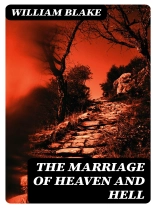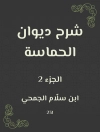William Blake’s ‘The Marriage of Heaven and Hell’ is a seminal work that challenges the confines of traditional dichotomies, presenting a visionary synthesis of spiritual and earthly realms. Through a unique mix of poetry, philosophy, and vivid visual imagery, Blake employs a robust literary style marked by rich symbolism and dynamic contrasts. The text serves as a radical rethinking of the relationships between good and evil, body and spirit, challenging established religious norms of his time while drawing from both Enlightenment ideas and mystical traditions. The richly illustrated plates enhance the reading experience, offering a dual interplay between textual and visual rhetoric that invites deep contemplation. Blake, a poet, painter, and printmaker, was a key figure in the Romantic movement, known for his deep engagement with spiritual and philosophical concepts. His rebellious spirit against the institutional dogmas of religion and his embrace of personal visionary experience significantly shaped ‘The Marriage of Heaven and Hell.’ Blake’s own life—marked by mysticism, poverty, and an ongoing quest for artistic and spiritual freedom—led him to produce this work as both a critique and a celebration of the human experience. This book is highly recommended for readers interested in exploring the intersections of art, spirituality, and philosophy. ‘The Marriage of Heaven and Hell’ not only broadens the understanding of Blake’s oeuvre but also serves as a profound invitation for readers to reevaluate the constructs of morality and existence, making it essential for scholars and enthusiasts alike.
Circa l’autore
William Blake (1757–1827) stands as one of the most enigmatic figures in literary history. An English poet, painter, and printmaker, his work is now considered seminal within the Romantic Age, though during his lifetime, Blake’s genius was largely unrecognized. Blake’s oeuvre is marked by its dual focus on both visionary and mystical thoughts, as well as societal critique and an opposition to the dogmatic institutionalized religion of his era. ‘The Marriage of Heaven and Hell’, a series of texts written between 1790 and 1793, is one of Blake’s most audacious works. It serves as a prose work that includes a series of aphorisms, a parody of Biblical prophecy, and his own illustrations. Groundbreaking for its unconventional narrative technique and radical theology, ‘The Marriage of Heaven and Hell’ is a key example of his highly original symbolic language and revolutionary poetry, which conveys Blake’s philosophy that true vision embraces the unity of opposites as a means to transcendent understanding. Blake’s literary style is distinctive for its melodic use of meter and prophetic tone, permeating his extensive range of poetic compositions. His body of work, which includes other seminal pieces such as ‘Songs of Innocence and of Experience’ and ‘The Prophetic Books’, remains influential, continually studied for its imaginative power and depth of spiritual insight.












